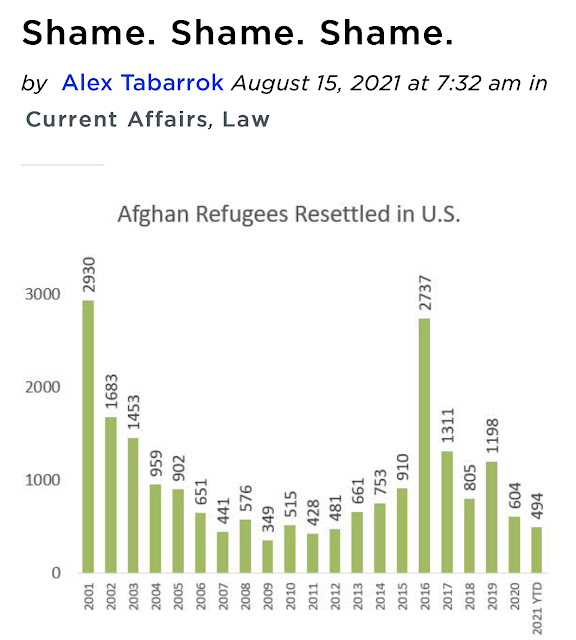What f’ing idiots thought that Afghanistan could stand against the Taliban after we leave without air power?
https://www.nationalreview.com/2021/08/the-day-afghanistan-died/
Number 2Taliban leader is Haqqani-known Al Qaeda leader
Reuters November 2020 "The president{Trump) has acted appropriately in this, has never said: 'Hey, we're going to zero. Let's go tomorrow.' It has always been a conditions-based effort and that effort continues," the senior U.S. defense official said, without explicitly detailing future drawdown plans.
Pentagon Chief Says Hopes Fading for More Open Taliban Government in Afghanistan
June 6 2021 NBC News-Without the contractors' help, Afghan forces will no longer be able to keep dozens of fighter planes, cargo aircraft, U.S.-made helicopters and drones flying for more than a few more months, according to military experts and a recent Defense Department inspector general's report.
July 24th - Forbes “The United States has said it will provide Afghanistan’s military with “over-the-horizon” air support after completing its troop withdrawal from the country. How it can do so with the significant number of potential constraints that may soon emerge, however, isn’t all that clear.” But the official, speaking after the calls with allies, suggested that Trump would not push a withdrawal faster than conditions on the ground allow.
U.S. and Afghan officials are warning of troubling levels of violence by Taliban insurgents and persistent Taliban links to al Qaeda.
WSJ Aug 14 KABUL—The Afghan government outpost in Imam Sahib, a district of northern Kunduz province, held out for two months after being surrounded by the Taliban. At first, elite commando units would come once a week on a resupply run. Then, these runs became more scarce, as did the supplies.
https://twitter.com/saeedshah/status/1425861403089453062?s=21
https://twitter.com/julianroepcke/status/1425751441629716485?s=21



No comments:
Post a Comment